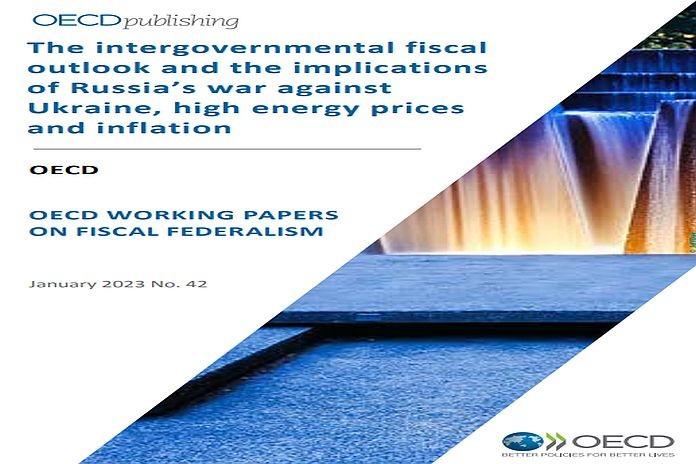By Caribbean News Global ![]()
PARIS, France – This series covers issues related to intergovernmental fiscal relations and local/regional public finance, such as tax and spending assignment across government levels; intergovernmental grants; fiscal equalization; local and regional public service efficiency; inter-jurisdictional tax competition; and macroeconomic issues such as intergovernmental fiscal management and sub-central fiscal rules. Many of these working papers are outputs of the OECD Network on Fiscal Relations Across Levels of Government.
Related working papers on fiscal federalism issues are also published in other OECD working paper series on tax policy, economics, public governance and regional development. An integrated list of key papers produced by the Fiscal Network can be found at http://oe.cd/fiscalnetwork.
The intergovernmental fiscal outlook and the implications of Russia’s war against Ukraine, high energy prices and inflation
Less than two years after the start of the COVID-19 pandemic, Russia’s illegal, unprovoked and unjustifiable war of aggression against Ukraine has triggered the biggest military confrontation in Europe since World War II. Many OECD countries have reacted to Russia’s aggression by providing military and humanitarian aid to Ukraine and by imposing economic sanctions on Russia, which has accentuated supply chain disruptions, especially in the energy sector. A combination of these supply shocks with a demand shock caused by expansionary fiscal and monetary policies to tackle the pandemic has created inflationary pressures on a scale not seen in decades.
Central banks around the world are acting to fulfil their price stability mandates by increasing interest rates and by engaging in quantitative tightening (primarily the selling of government bonds to reduce central bank balance sheets), all of which put pressure on borrowing costs at a time when governments are engaging in expansionary fiscal policy to alleviate the impact of inflation. The objective of this policy note is to examine the main consequences of this challenging environment for the fiscal stance of different levels of governments. These include the weakening outlook for government revenues in times of high expenditure pressures from a more rapid energy transition as well as high borrowing costs.
- OECD working papers on fiscal federalism is available here.





